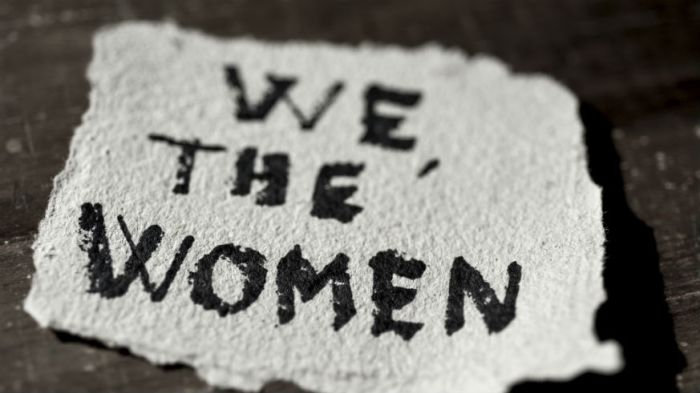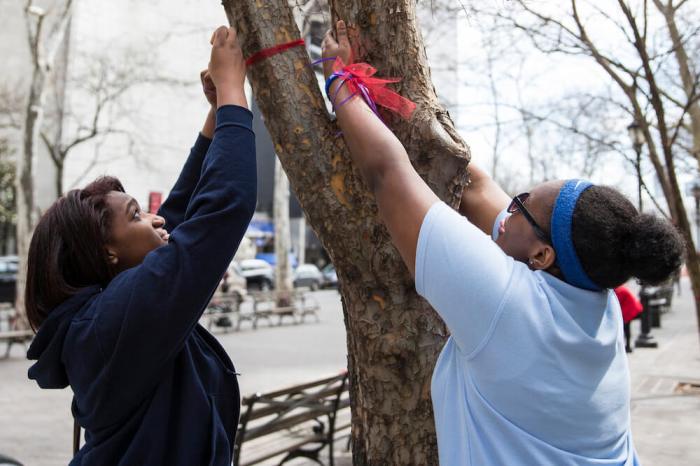The last few years have seen Turkey go into a conservative tailspin. The 2013 Gezi Park protests saw passionate — and besieged upon — activists attacking restrictions on freedom of the press, secularism and women’s rights. But it’s still, actress Elit Iscan tells us, a very mixed society. Iscan may be one of the five young stars of “Mustang,” a film following teenage girls put under house arrest by their traditionalist uncle and grandmother. But Iscan says that’s not her life. “My family is very modern. They’re not trying to put me in an arranged marriage,” Iscan tells us. She’s been allowed to be independent. In fact, she’s spent much of her life traveling, even before she went on a global press tour for the film, which premiered at the Director’s Fortnight section of this year’s Cannes Film Festival. RELATED: The Turkish “Mustang” offers even more than righteous feminism Still, she’s very aware that her life is not typical. “There are families in Turkey still raising their children the conservative way,” she says. “Political figures talk a lot about what women should do. They make speeches on TV saying women should have three children, that they better stay at home to take care of them, that they don’t need to work, that they better not go out when they’re pregnant. I’ve never been made to think this way by my family, but I definitely experience it from the government.” “Mustang,” which was produced in France (and is the country’s official entry for the Best Foreign Language Film Oscar), was not only directed by a woman, Deniz Gamze Erguven, but one who was pregnant during filming. They shot in seaside Turkey, among locals who may not all, Iscan says, been aware they were making what amounts to a political movie. “Some people did not trust her,” Iscan reveals. But Iscan did. Erguven would make each of her five young actresses — whose very close-knit, isolated characters she described to her stars as “coming from the same spaceship” — watch certain movies that would help define them. Iscan got Ingmar Bergman’s “Summer with Monika,” about a free-spirited woman, and Jean-Luc Godard’s “Vivre Sa Vie,” in which Anna Karina tries to navigate the world of men only to be destroyed. “I learned so much from her,” Iscan says of her director. “She had to deal with so many problems. By seeing her I felt more confident about the future and about my dreams.”
Unlike her fellow young actors, Iscan had prior film experience. Iscan has been acting since she was in primary school. When she was 12 she was discovered by director Reha Erdem, who cast her in 2006’s “Times and Wind,” and again, two years later, in “My Only Sunshine.” RELATED: Geek Girl in Hollywood: Here’s to strong and complex movie heroines Iscan wants to continue acting, especially internationally. (In addition to Turkish, she speaks English and Italian and is learning French.) “I want to work with very different cultures and backgrounds,” she explains. But she’s also studying visual arts at a university in Istanbul, where she not only nurses hopes of one day making her own films but also studying sociology, to better understand her own country and others. She considers herself part of the group in Turkey aiming for reform, even as the government’s oppressive response to the 2013 protests, she says, “hurt my courage, hurt my hopes.” The response to “Mustang,” though, both at home — where it was either loved or reviled, with no middle ground, Iscan recalls — and internationally has her optimistic, at least that the subject of women’s rights is being openly discussed. “Even though the film is talking about situations happening in Turkey, woman’s rights issues are also relevant around the world,” Iscan explains. “Women are being persecuted by men everywhere. There are people from Korean and the U.S.A. and Italy saying, ‘I felt very close to these girls. I felt like I was one of them.’ It’s a very universal issue.”
Elit Iscan on being hopeful about women’s rights, in Turkey and everywhere
Follow Matt Prigge on Twitter @mattprigge
























